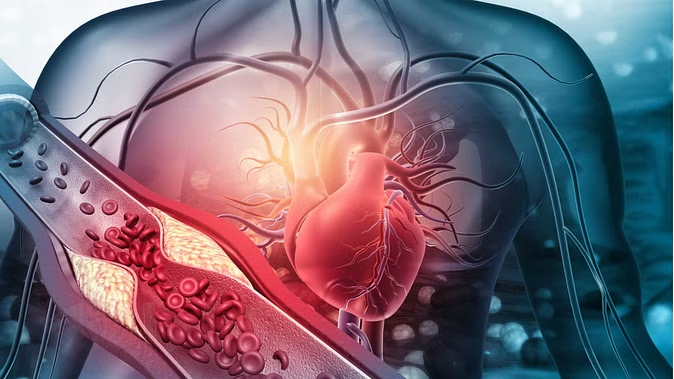Do you often face problems like dizziness, darkness in front of your eyes, or fainting after sitting for some time or waking up from sleep? In some situations, it is considered a problem due to weakness, but if you have this problem again and again, then be careful, it can also be a sign of serious health problems. In medical terms, this is known as postural orthostatic tachycardia syndrome (POTS).

POTS is a disorder in which most of the body's blood remains in your lower body when you stand. Heart rate increases to increase blood circulation throughout the body, due to which such problems can occur.
Blood circulates continuously throughout our body, whether we are sitting, standing, or lying down. However, in people who suffer from POTS, blood is not able to reach the upper part of the body while standing. This situation can also be seriously problematic. Let us know why POTS occurs and what can be its side effects.
Autonomic nervous system problems
Experts at Johns Hopkins say, normally the autonomic nervous system of our body maintains a balanced heart rate and blood pressure so that blood circulation can continue properly in all parts of the body. In people suffering from POTS, blood circulation is not balanced properly. This means that your body is not able to keep your blood pressure stable.
For this reason, whenever you stand, most of the blood remains in the lower parts of the body and there is a shortage of blood in the upper parts.
Why does this kind of problem occur?
POTS can have different causes in every person. Some researchers believe it is an autoimmune disorder. When you have an autoimmune disorder, the body's immune system attacks healthy tissues for unknown reasons. Its genetic risk has also been seen and this problem can happen to a person of any age. Experts say, due to some types of diseases, the risk of POTS has also been seen to increase in people.
Anemia (lack of enough red blood cells in the body)
Autoimmune diseases, such as Sjögren's syndrome or lupus
Chronic fatigue syndrome
Diabetes problem.
Multiple sclerosis disease
In some studies, this problem has been seen in people suffering from Covid-19.
How to know if you too have the problem of POTS?
Health experts say that since there is a problem with blood circulation in POTS, it can disturb the balance of your entire body. Generally, due to this, people may have problems like dizziness or fainting, blurred vision, nausea, excessive sweating, and feeling tired.

It can also cause high or low blood pressure or a fast or slow heartbeat. The color of the hands and feet of some people may also start becoming abnormal. If the blood remains below the heart, it can also cause the face to turn pale or the hands to turn purple.
Treatment and prevention of POTS problem
There is no specific treatment for POTS, but some supportive therapy methods can reduce the problems caused by it. Doctors can give some medicines to keep blood circulation normal. Apart from this, it is advised to improve lifestyle for problems related to blood circulation. Doing regular exercise can be helpful for you in this. Diet is considered to play an important role in maintaining normal blood pressure and heart rate.
If you also experience the problem of POTS, then definitely consult a doctor in this regard.
(PC: ISTOCK)










